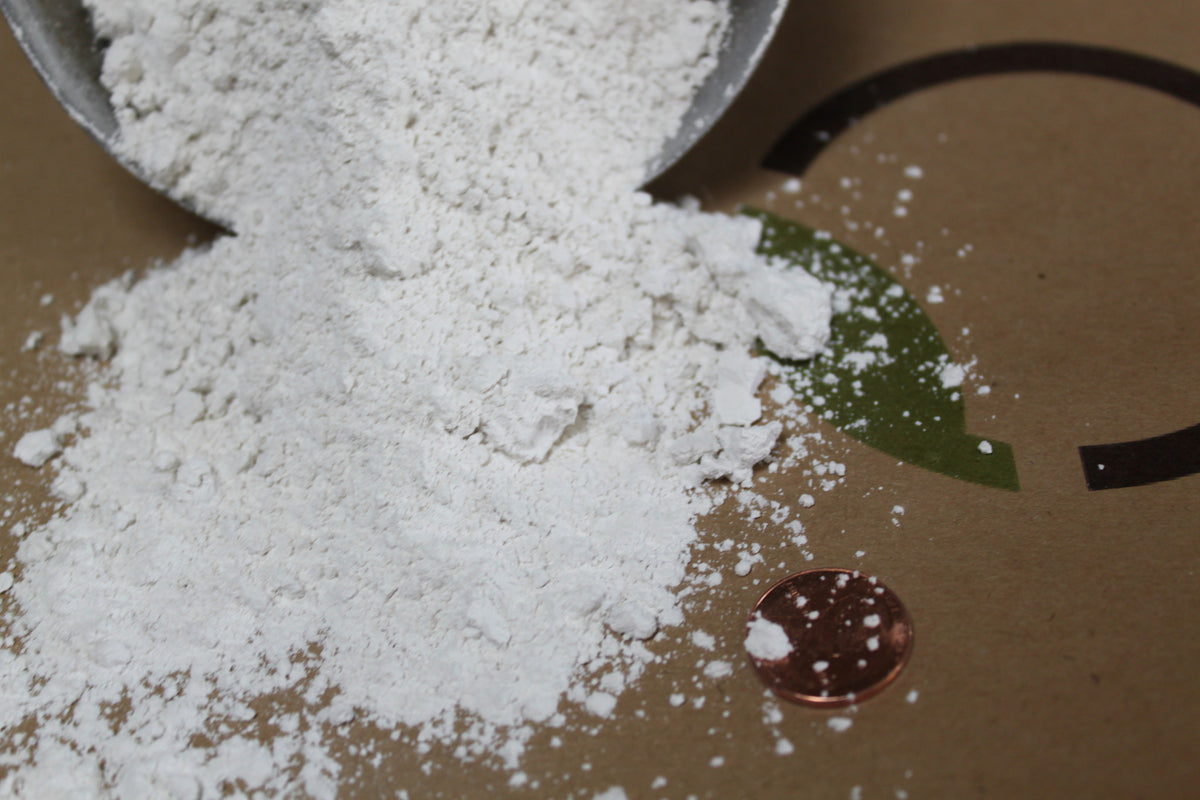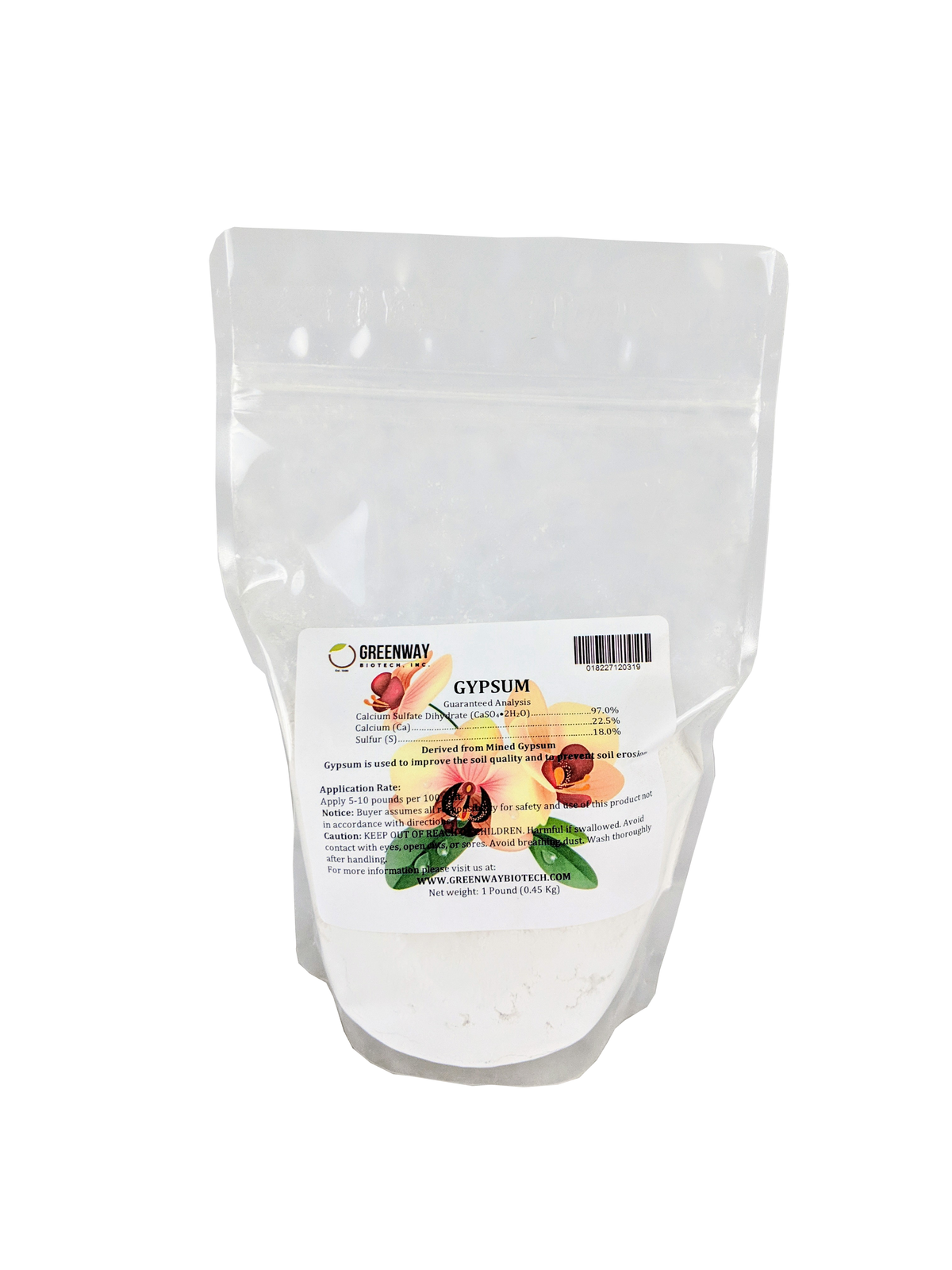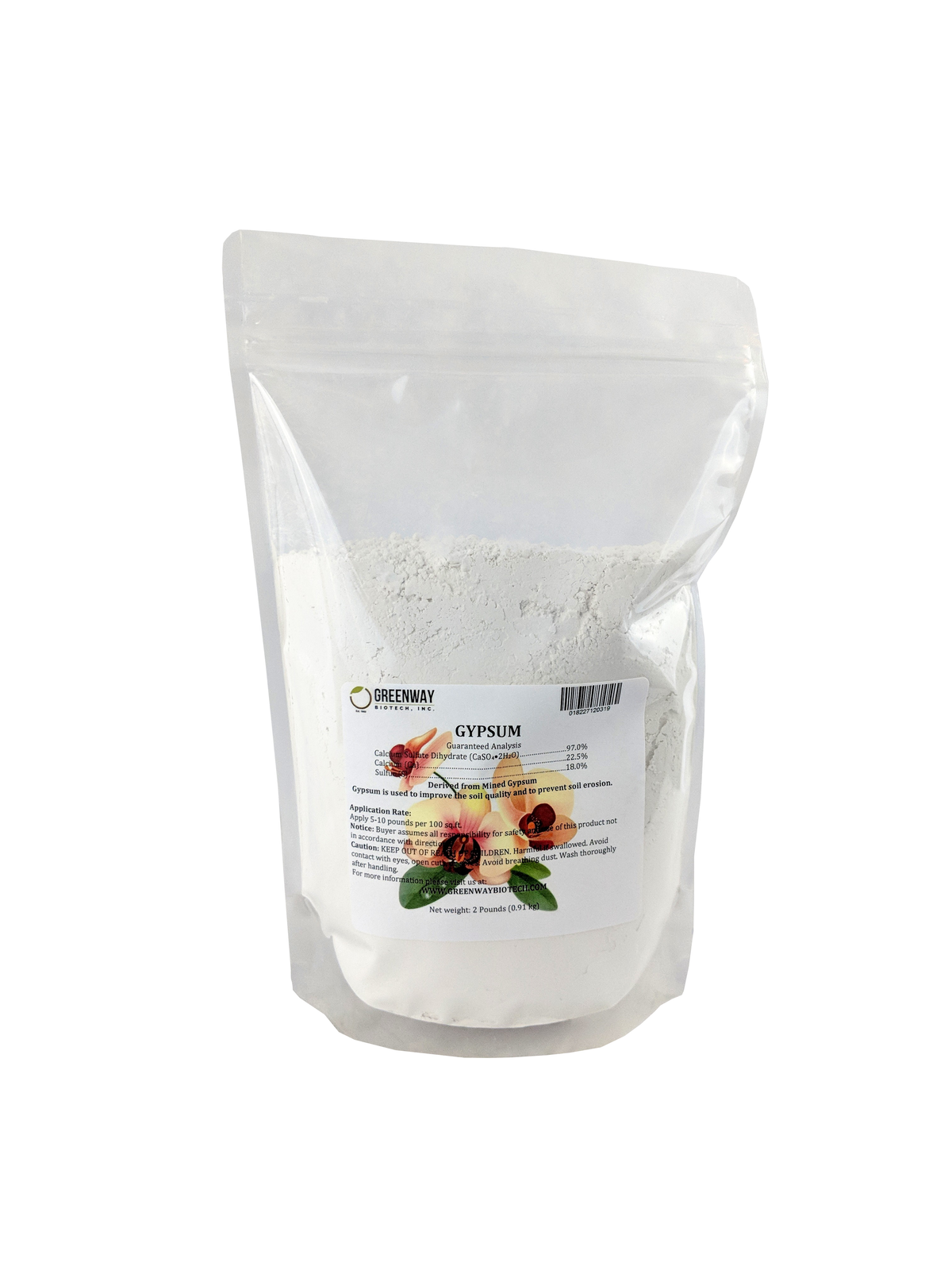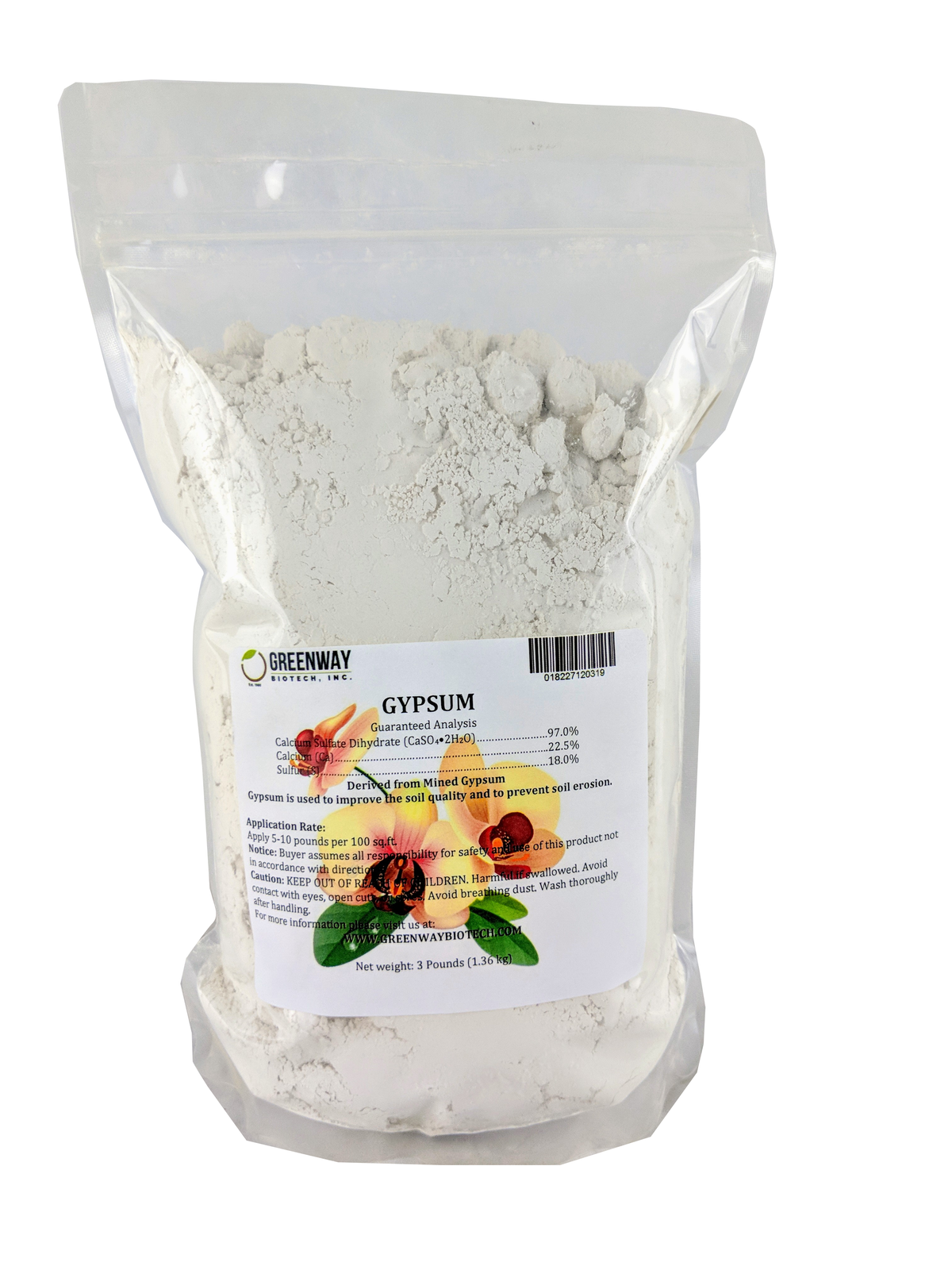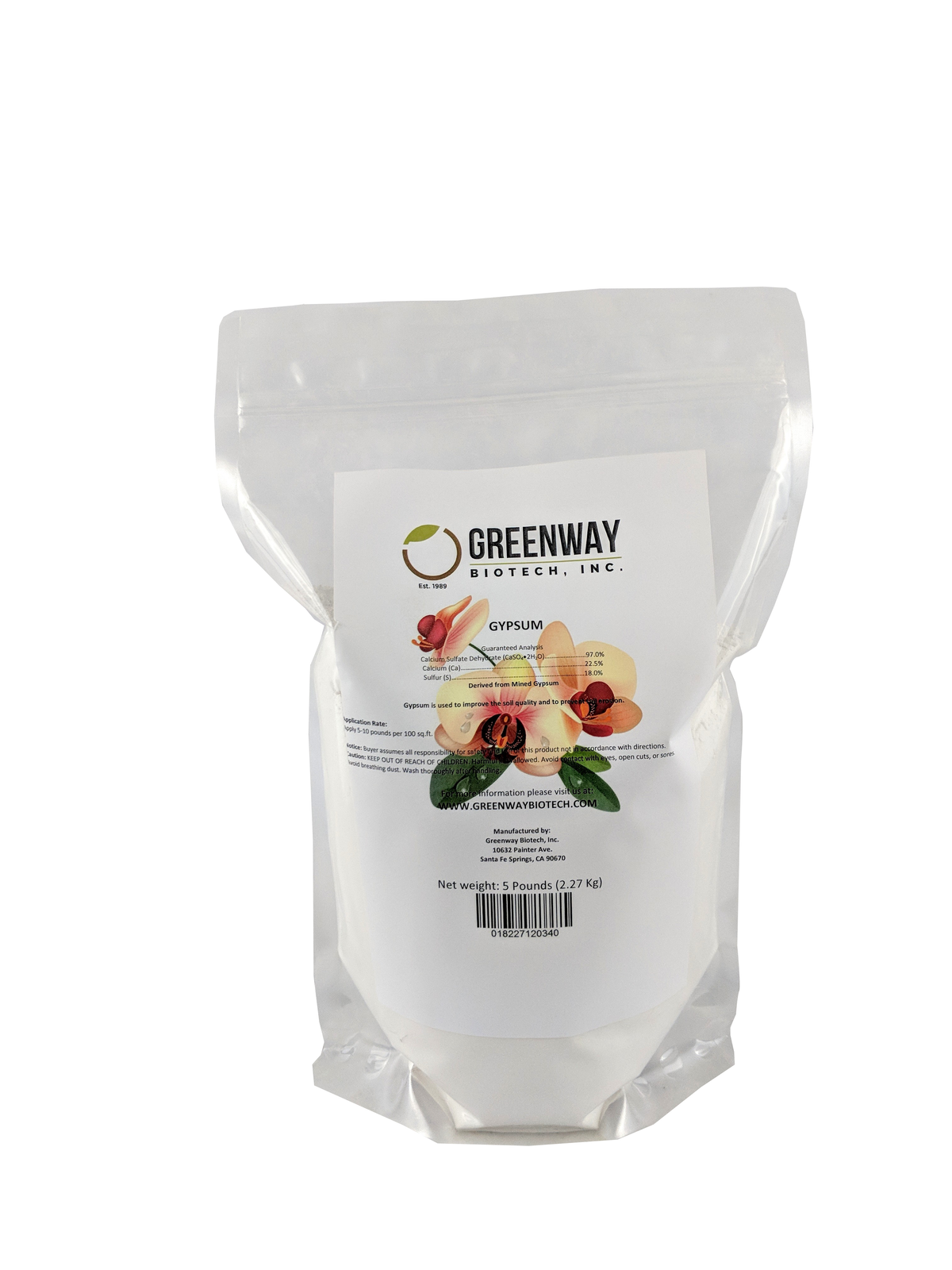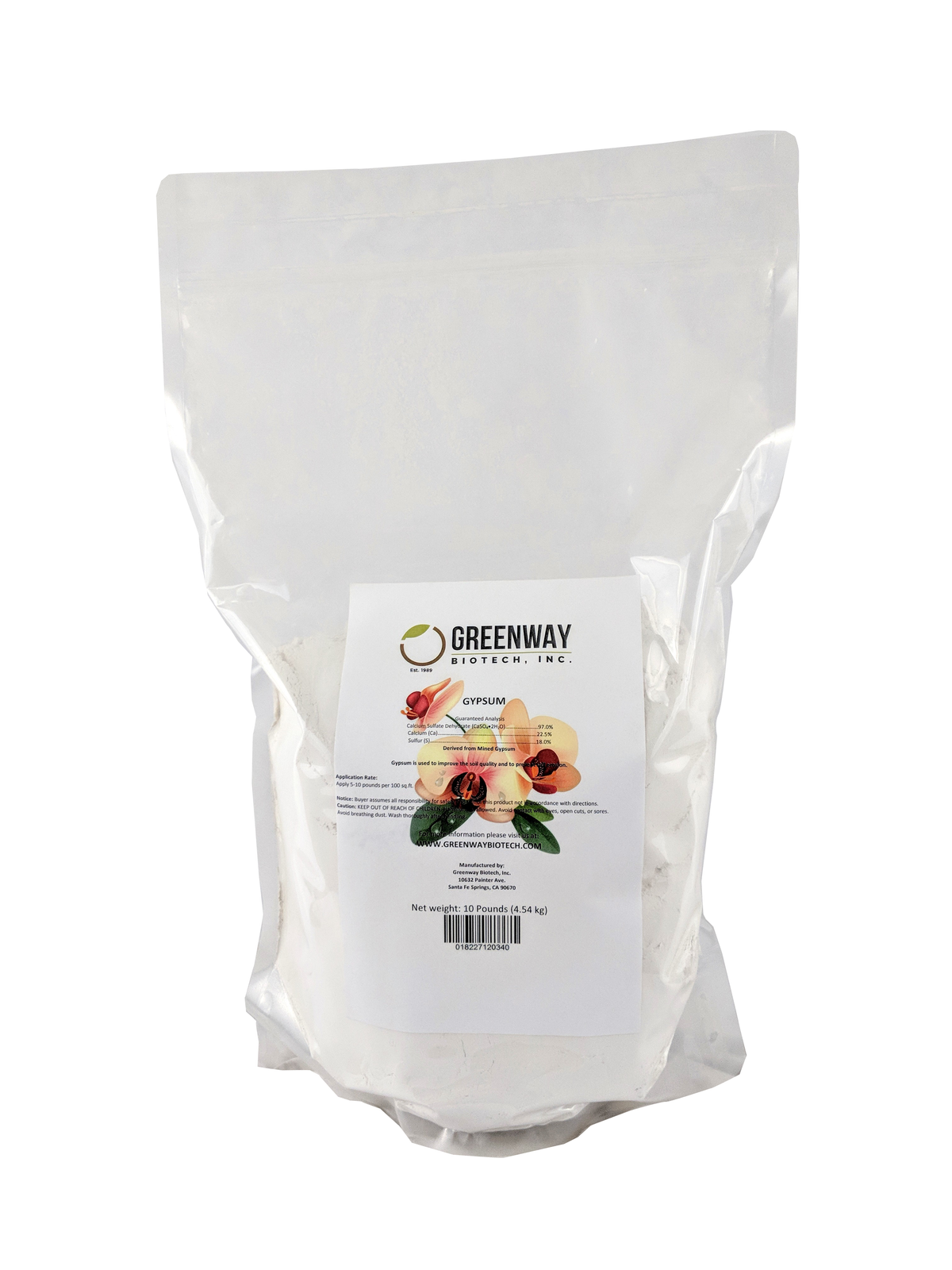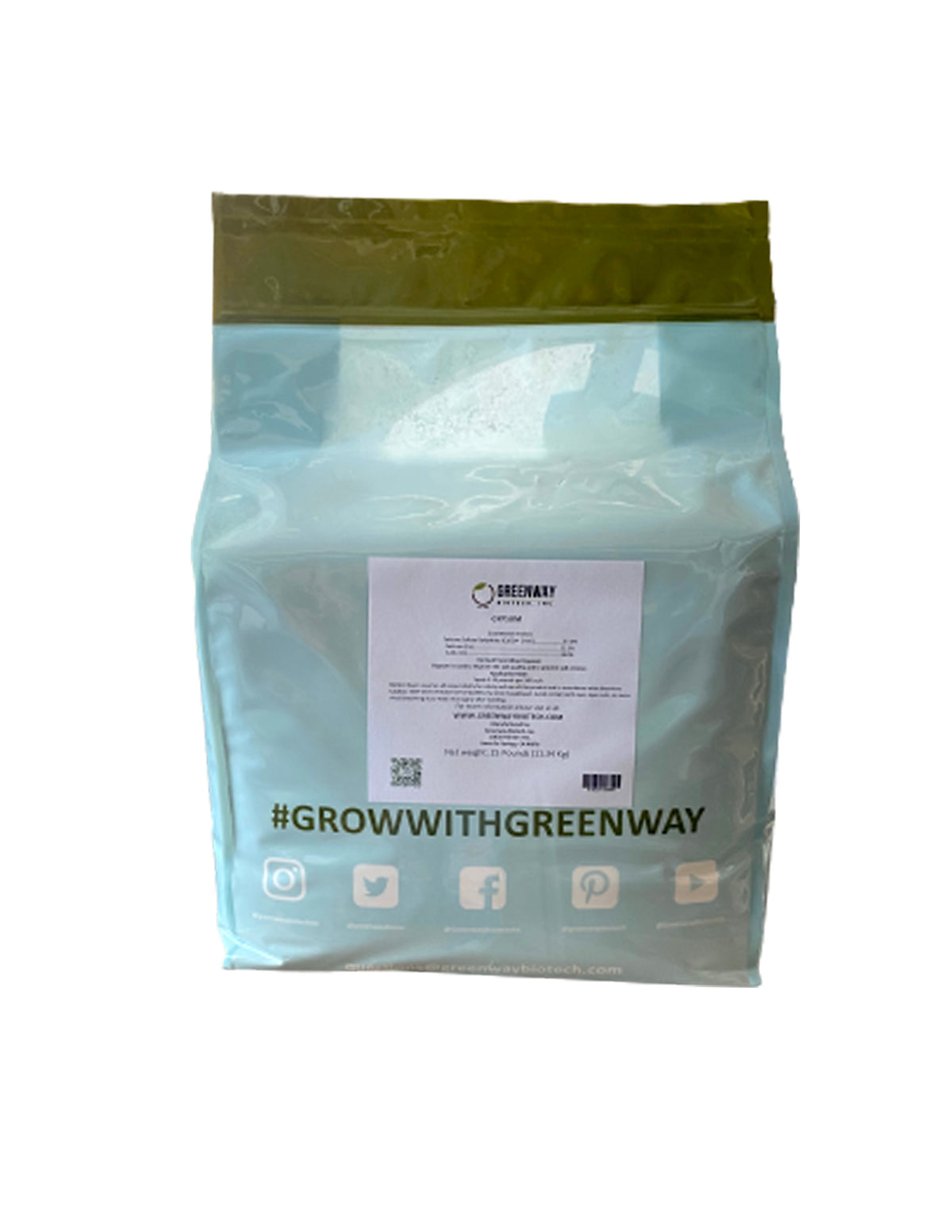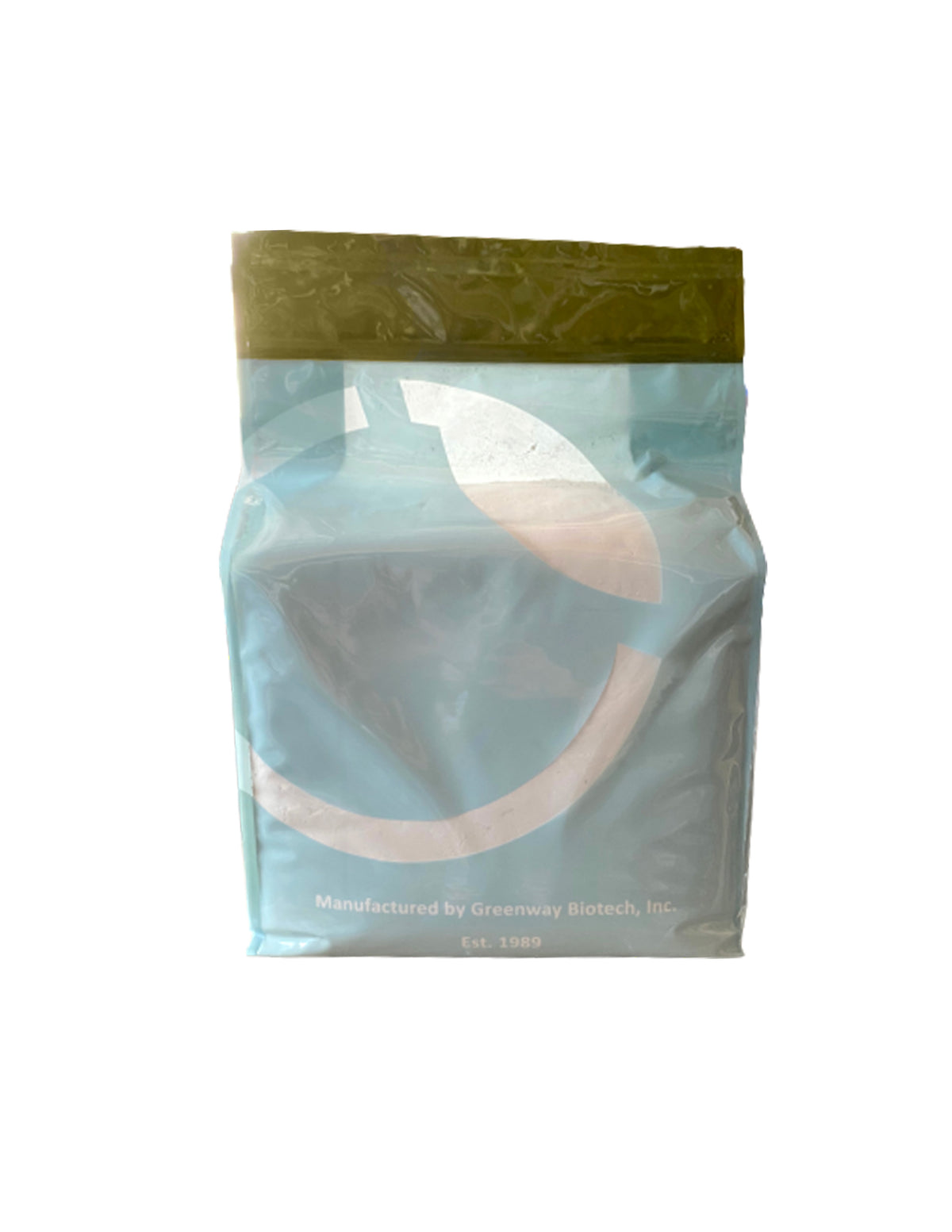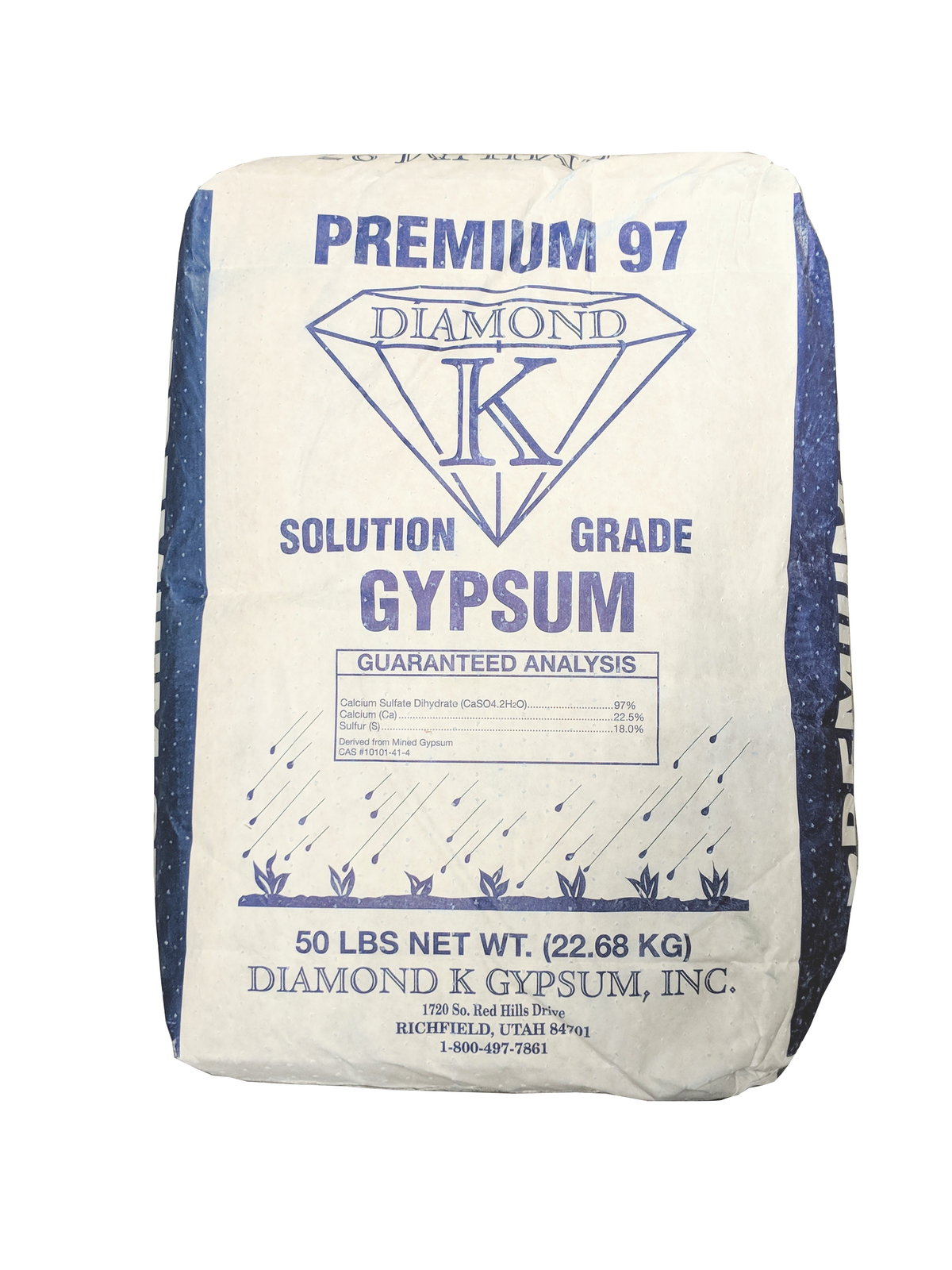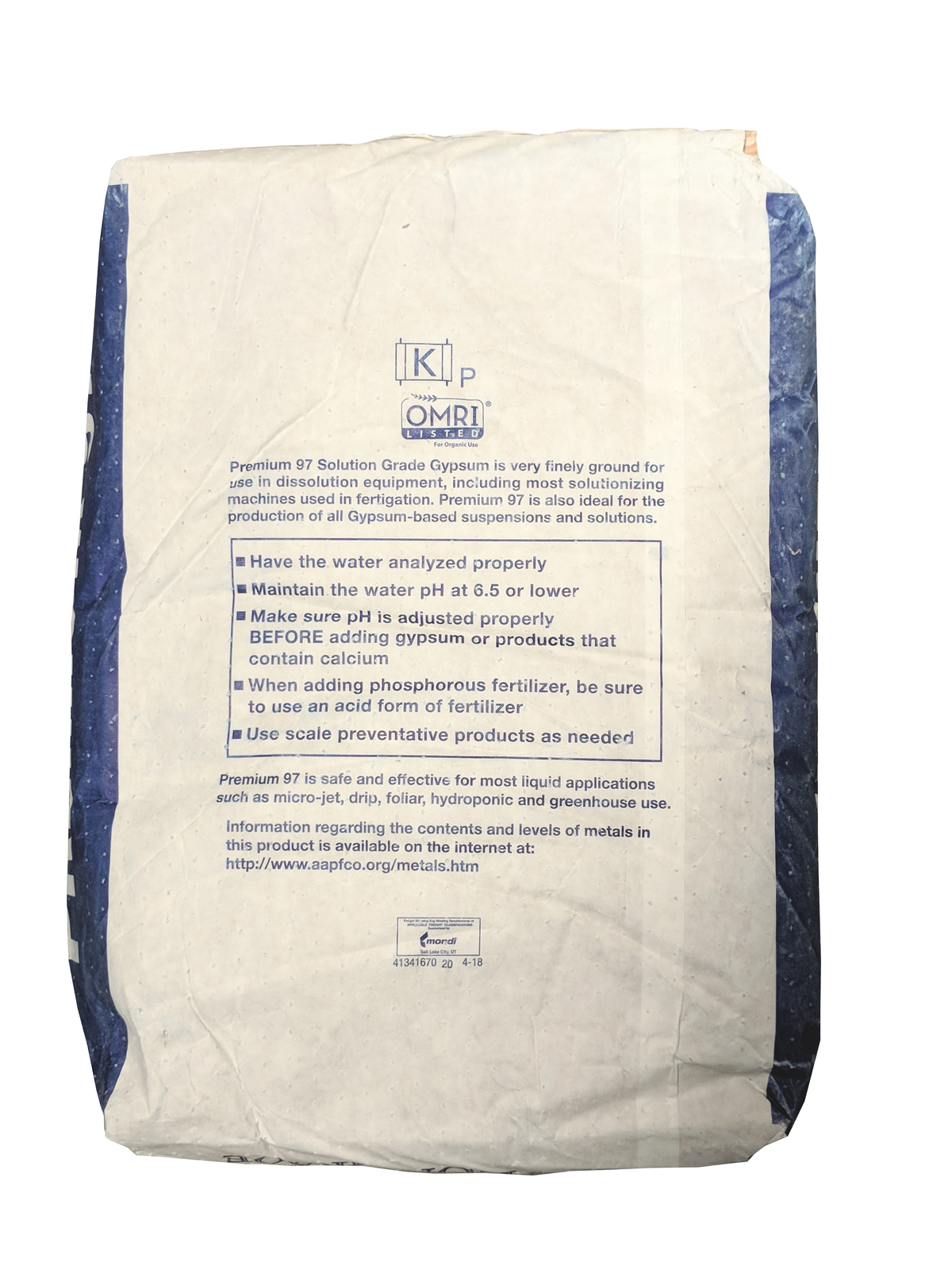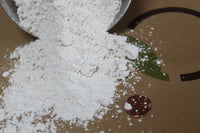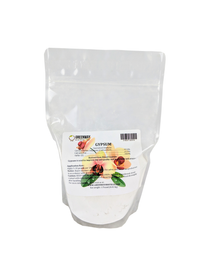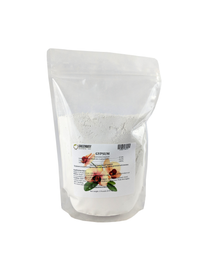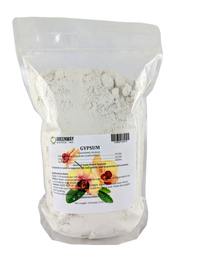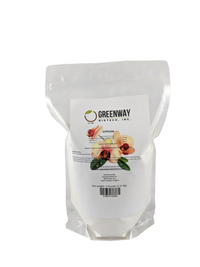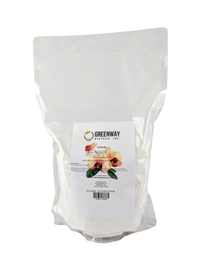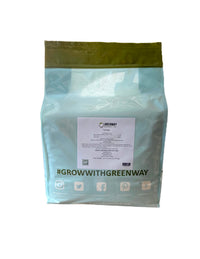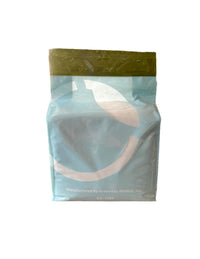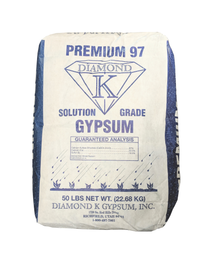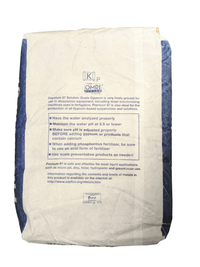Gypsum
- Regular Price
- $ 14.99
- Sale Price
- $ 14.99
- Regular Price
- $ 18.99
- Unit Price
- per
High-Quality Gypsum
Versatile Mineral for Agriculture, Construction & More
Our premium gypsum is a reliable, high-purity mineral compound renowned for its diverse applications across multiple industries. Mined from top-grade sources and meticulously processed, it ensures the consistency and quality you need for everything from agriculture to construction.
Agricultural Benefits
Gypsum is widely used in agriculture to enhance soil health, boost crop yields, and address specific soil deficiencies.
- Soil Amendment: Improves soil structure by breaking up heavy clay soils, promoting better drainage and root penetration.
- Sodic Soil Reclamation: Replaces excess sodium with calcium, restoring soil fertility and structure in sodic soils.
- Nutrient Source: Provides essential calcium and sulfur, supporting cell wall strength and protein synthesis in plants.
- pH Adjustment: Helps neutralize alkaline soils, improving nutrient availability and overall soil fertility.
- Alleviating Soil Toxicity: Reduces aluminum and manganese toxicity by aiding in leaching and preventing harmful uptake by plants.
- Improved Drainage & Erosion Control: Enhances water infiltration, reduces runoff, and helps minimize soil erosion.
- Improved Soil Structure & Water Relations: Encourages better aeration, higher water retention, and healthier root development.
- Increased Earthworm Population: Fosters an environment conducive to beneficial earthworms, further enriching soil structure and nutrient cycling.
Application Rates & Methods
Proper application of gypsum depends on soil type, crop requirements, and your specific agricultural goals. Below are general guidelines. Always perform a soil test to determine exact needs.
Soil Amendment
| Soil Type | Application Rate | Purpose |
|---|---|---|
| Heavy Clay Soils | 1–2 tons/acre (2,000–4,000 kg/ha) | Improve soil structure & drainage |
| Sodic Soils | 2–4 tons/acre (4,000–8,000 kg/ha) | Reclaim soils with high sodium |
pH Adjustment
| Soil Condition | Recommended Rate | Notes |
|---|---|---|
| Alkaline Soils | 500–2,000 lbs/acre (560–2,240 kg/ha) | Adjust based on soil tests & buffering capacity |
Nutrient Source
Rates may vary based on crop nutrient requirements and existing soil fertility. Use gypsum to ensure adequate calcium and sulfur supply, especially for crops prone to these deficiencies.
Maintenance & Timing
- Ongoing Application: Annual or periodic applications may be beneficial, depending on crop rotation and soil test results.
- Broadcast or Incorporate: Gypsum can be broadcast on the soil surface or incorporated pre-planting. Light incorporation improves distribution and effectiveness.
- Monitor Soil: Regularly test your soil and adjust gypsum applications as needed.
- Regulatory Compliance: Follow local best practices and guidelines to minimize environmental impact.
Construction Industry
- Drywall & Plasterboard: Essential for producing fire-resistant, soundproof interior walls and ceilings.
- Mortar & Cement: Added to regulate setting times and improve workability.
- Gypsum Blocks & Panels: Lightweight, mold-resistant materials for interior partition walls and decorative elements.
Industrial Applications
- Construction Materials: Gypsum-based products like plaster, joint compounds, and grouts.
- Paper Manufacturing: Used as a filler and coating agent to enhance paper strength and printability.
- Textile Industry: Employed in sizing and finishing processes to impart stiffness and improve dye uptake.
Environmental Remediation
- Water Treatment: Aids in removing turbidity, heavy metals, and phosphates.
- Air Pollution Control: Used in flue gas desulfurization (FGD) systems to capture sulfur dioxide emissions.
Art & Crafts
- Sculpture & Molding: Fine-grained texture and easy carving make gypsum ideal for artists.
- Model Making: Commonly used in architectural models, dioramas, and hobby crafts due to affordability and workability.
Derived From
Mined Gypsum
Grow with Confidence
Our high-quality Gypsum is designed to give you peace of mind and exceptional results. Explore the following features that set our product apart:
Product Quality Guaranteed
- All our products are manufactured in California, USA
- Tested by independent third-party laboratories for quality assurance
- Registered with the California Department of Food and Agriculture (CDFA)
- Rigorously tested to ensure products are free from heavy metals
Hassle-Free Return Policy
We stand behind the quality of our Gypsum. If you're not completely satisfied with your purchase, we offer a 30-day money-back guarantee. Simply return the unused portion of the product in its original packaging, and we'll process a full refund, no questions asked.
Environmental Responsibility
At Greenway Biotech, we're committed to sustainable practices:
- Our packaging is made from biodegradable materials
- After use, you can leave the packaging in your garden or compost, where it will naturally degrade
- We source our raw materials from reputable suppliers
- Precise nutrient formulation to minimize runoff and environmental impact
- Support for sustainable farming practices
- Ongoing research into organic and eco-friendly fertilizer solutions
Charitable Contributions
At Greenway Biotech, we believe in giving back to our community:
- 1% of all profits from our product sales go to the Greenway Foundation
- The Greenway Foundation is dedicated to improving children's education
- Your purchase contributes directly to enhancing educational opportunities for children
For more information about the Greenway Foundation and its initiatives, please visit greenway.foundation.
Customer Success Stories
"We've used this gypsum for a few seasons now, and it's made a world of difference in our clay-heavy soil."
- Sarah W.
"Our citrus trees have never looked better! So glad we discovered this product."
- Mark L.
Frequently Asked Questions
How often should I apply gypsum?
Typically once a year or as recommended by a soil test. This ensures your soil maintains optimal structure and nutrient balance.
Will gypsum raise my soil’s pH?
Gypsum helps amend alkaline soils but does not significantly alter soil pH when used in moderate rates. It primarily addresses sodium issues and supplies calcium and sulfur.
Is gypsum safe for organic gardens?
Yes, gypsum is generally approved for use in organic farming. However, always verify with your specific certifying agency to ensure compliance.
Discover More Garden Wisdom
Have Questions?
Check out our Gypsum FAQ for more in-depth answers, or contact our experts for personalized advice.
